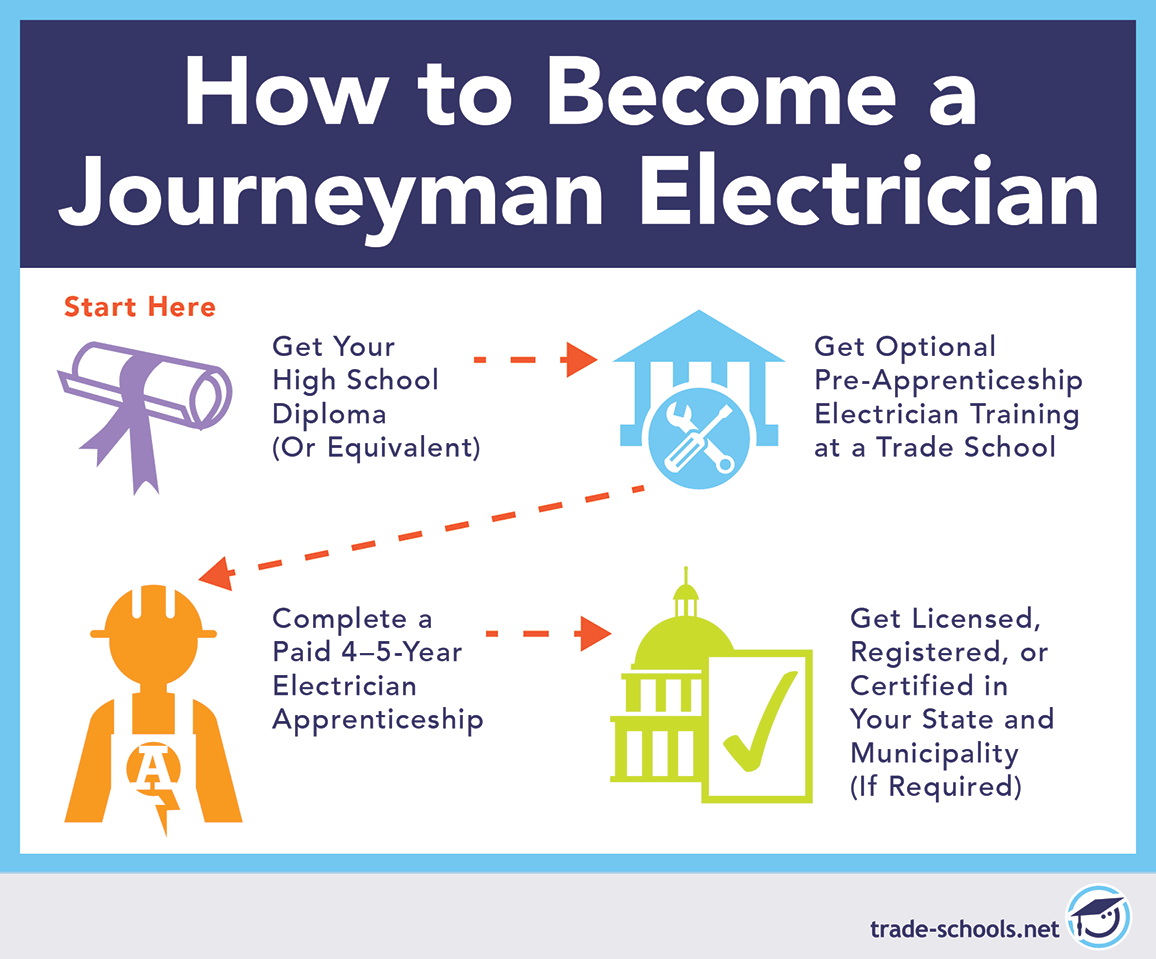Electrician apprenticeships can be your ticket into the rewarding skilled trades industry. Electrician Brighton work either inside or outside to make possible the use of lights, televisions, industrial equipment, appliances and many other items essential to life.
By including an apprenticeship as part of your electrician training, you can gain on-the-job skills and knowledge under the direction of experienced professionals. Here is a comprehensive guide on how to become an electrician, beginning with pursuing an electrician apprenticeship:
Apply for an Electrician Apprenticeship
In most cases, becoming an electrician at the journeyman level requires that you complete four or five years of paid training as an apprentice. But before applying for an apprenticeship, it may be worthwhile to learn a few basics by finishing a short electrical technology program at a nearby trade school. Doing so might give you a competitive edge against other applicants.
That said, a common first step in learning how to become an electrician apprentice is to apply with the National Electrical Contractors Association (NECA)—the national voice of the electrical construction industry, committed to bettering the industry through research, education, advocacy, and standards development. The NECA sponsors over 300 joint training apprenticeship programs, and can allow electrical apprentices to earn a wage while gaining industry-standard skills and knowledge.
Choose a Specialty and Complete Your Coursework
The NECA is associated with many regional and local chapters, which offer an electrician apprenticeship curriculum developed by their National Joint Apprenticeship and Training Committee (NJATC). After finding your local chapter and researching their offerings, you may have the option of choosing a specialty for your apprenticeship, such as residential wireman, VDV installer technician, outside lineman, and inside lineman.
No matter which chapter or specialty you choose, your electrician apprenticeship will be a multi-year undertaking, combining theoretical classroom instruction with extensive real-life experience. Most electrical apprenticeship programs include at least 144 classroom hours, as well as an annual minimum of 2,000 hours spent on-the-job.
Keep in mind that, in some states, you may need to register your apprenticeship or apply for an electrician apprentice license before beginning any training on actual job sites.
Initially, your apprentice electrician job description will likely include a lot of helper duties such as holding tools, carrying materials, cleaning work sites, and performing other basic tasks as directed by an electrical journeyman or master electrician. But as your training continues, you’ll be asked to do things that require more and more skill, all while being supervised. It’s just one of the many rewarding aspects of becoming an electrician through this process.
Apprentice Electrician Salary: Earn Money While Training on the Job
As an apprentice electrician, salary or wages are usually paid based on an hourly rate. And they are typically in the range of 40 to 50 percent of what a journeyman electrician earns.* But it’s not uncommon to find electrician apprenticeship jobs that start at the higher end of that range. In 2016, the average pay of a fully trained electrician in the U.S. was $27.24 per hour.** So a lot of apprentices probably earned about $13.62 per hour, which is the equivalent of $28,330 for a year of full-time work.
During your real-world training, your progress might be assessed from time to time through an electrician apprenticeship test designed specifically by your employer.
Pass the State Examination
After successfully completing your electrical apprenticeship program, your next step is to become an electrical journeyman by passing a licensing examination. (These tips on how to ace an exam can come in handy for completing this step.) Licensing requirements can vary by state, and multiple licensing examinations exist. However, most states have a minimum requirement of successfully taking the electrical journeyman’s examination, administered by state licensing boards.
Once you have become a licensed electrical journeyman, you’ll be free to pursue full-paying electrician jobs. You will also have the opportunity to further your classroom training in order to upgrade your skills in the areas of fiber optics, telecommunications, safety, programmable logic controls, the National Electric Code, and more.
Research Your Electrician Career Options
As a licensed journeyman, a variety of career options could be available to you. For example, you could choose to pursue an electrician position with a local contractor. The NECA website is a good place to start your job search, as they often post job opportunities with contractors.
If you are willing to continue your education in order to gain business and management skills, you could also prepare to start up your own business, working as a freelance electrician.




